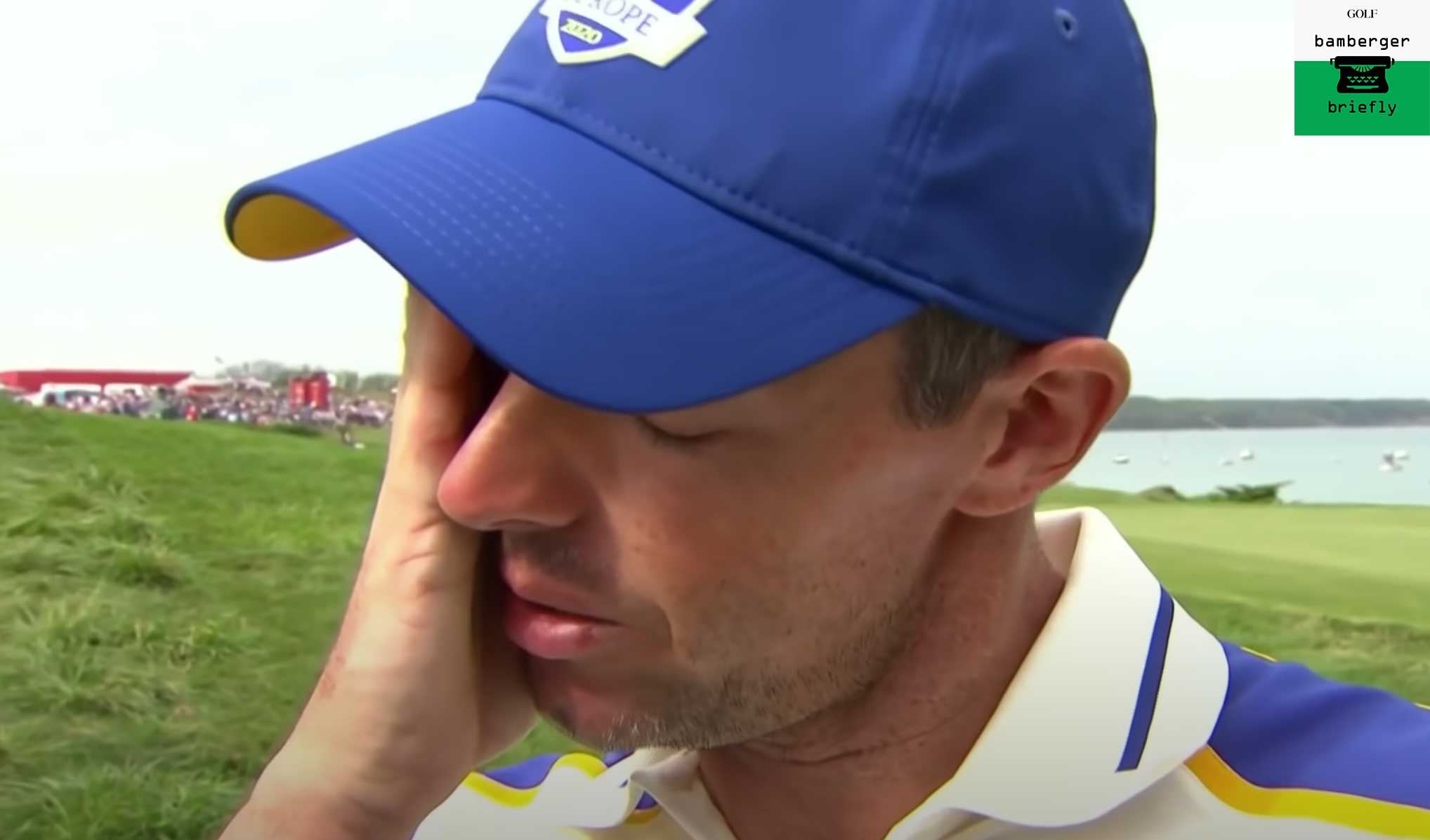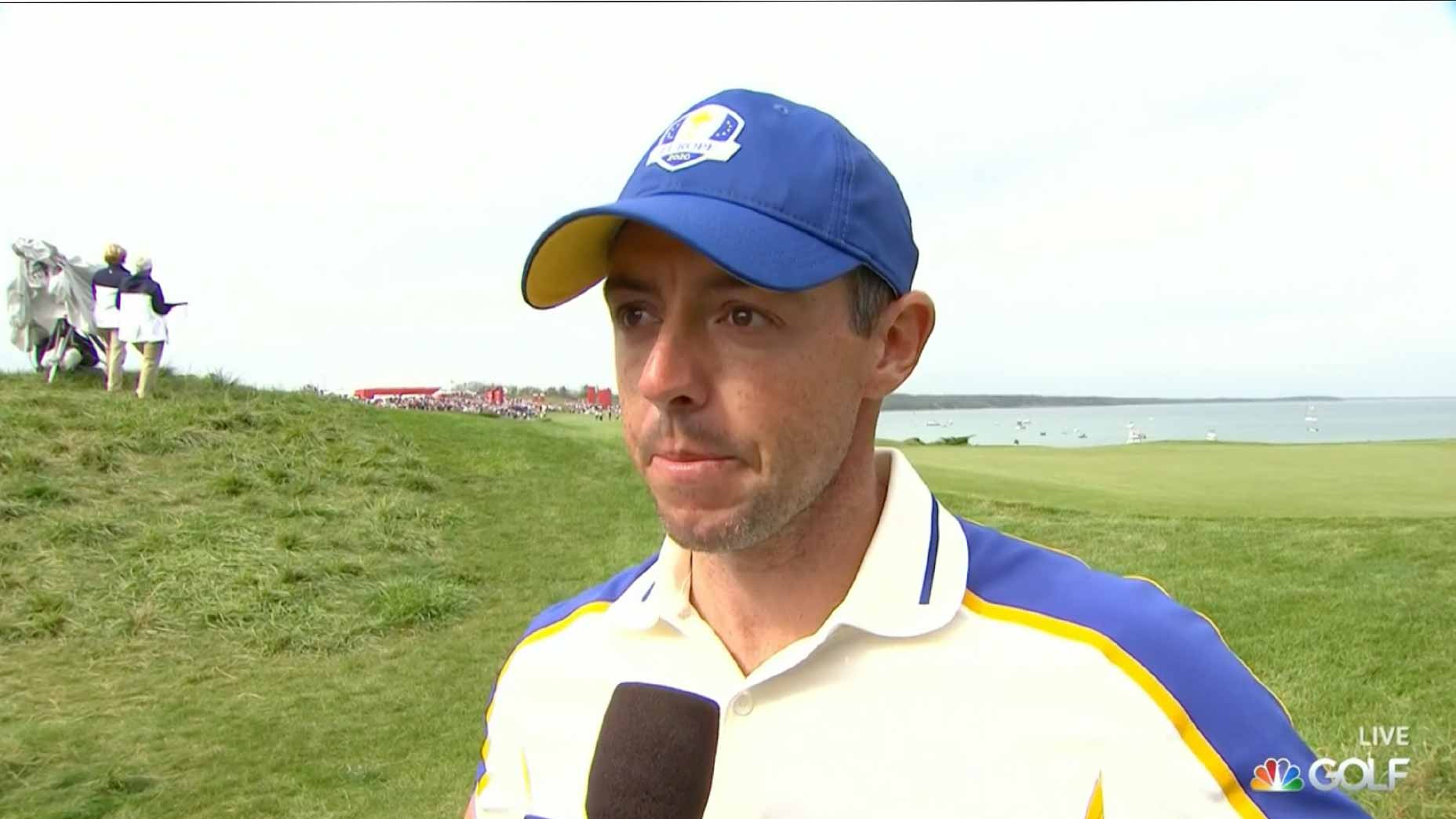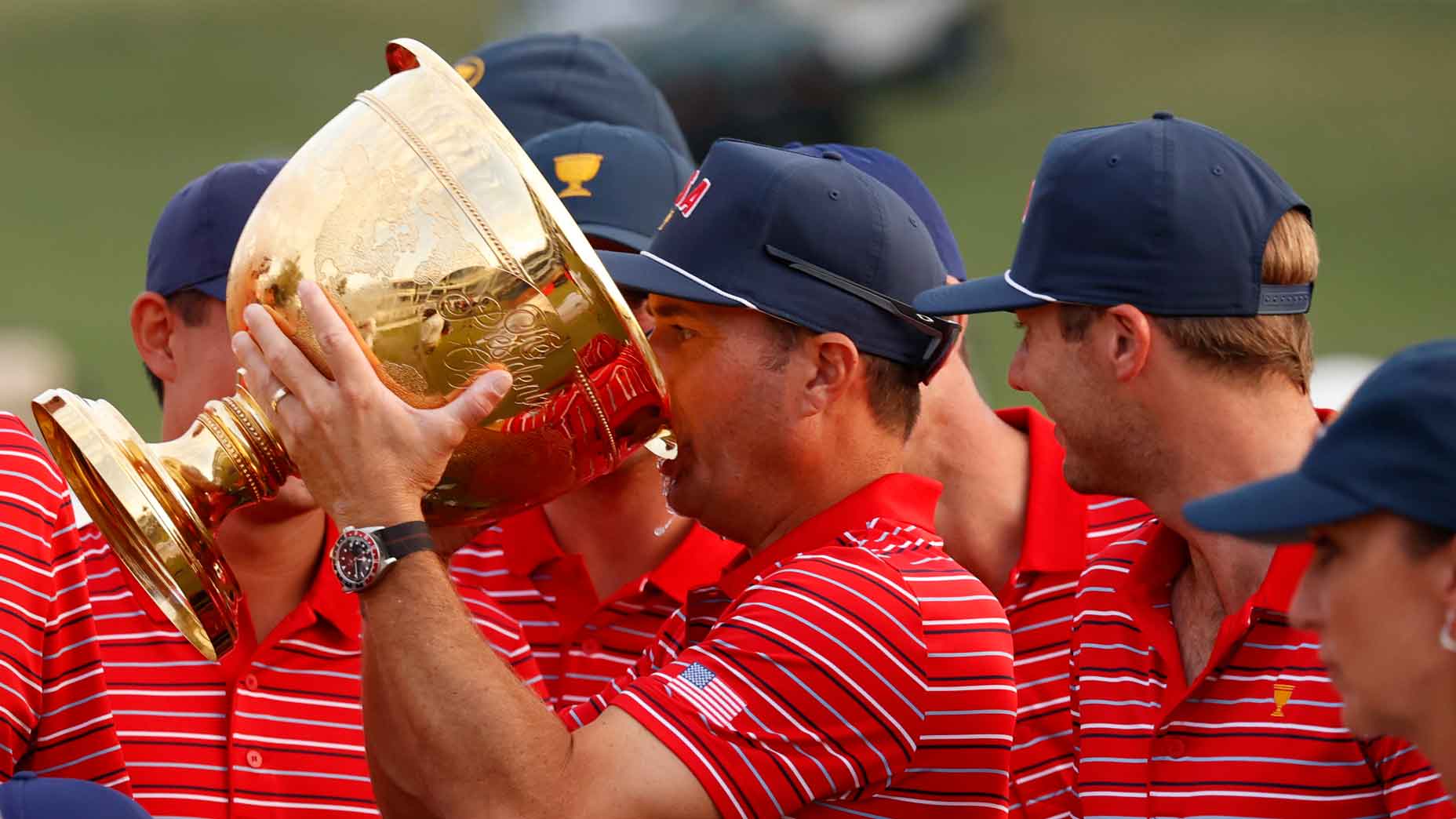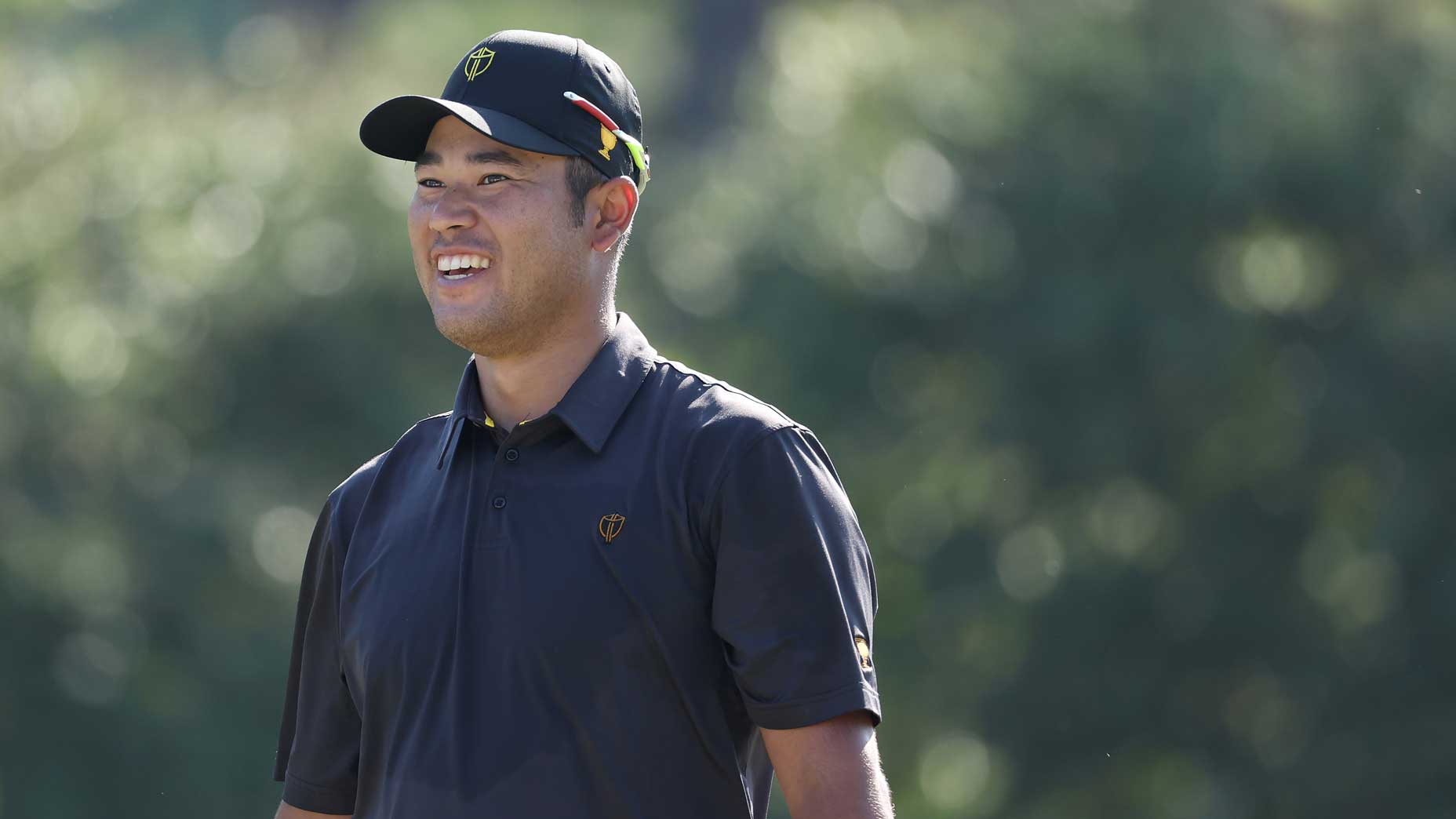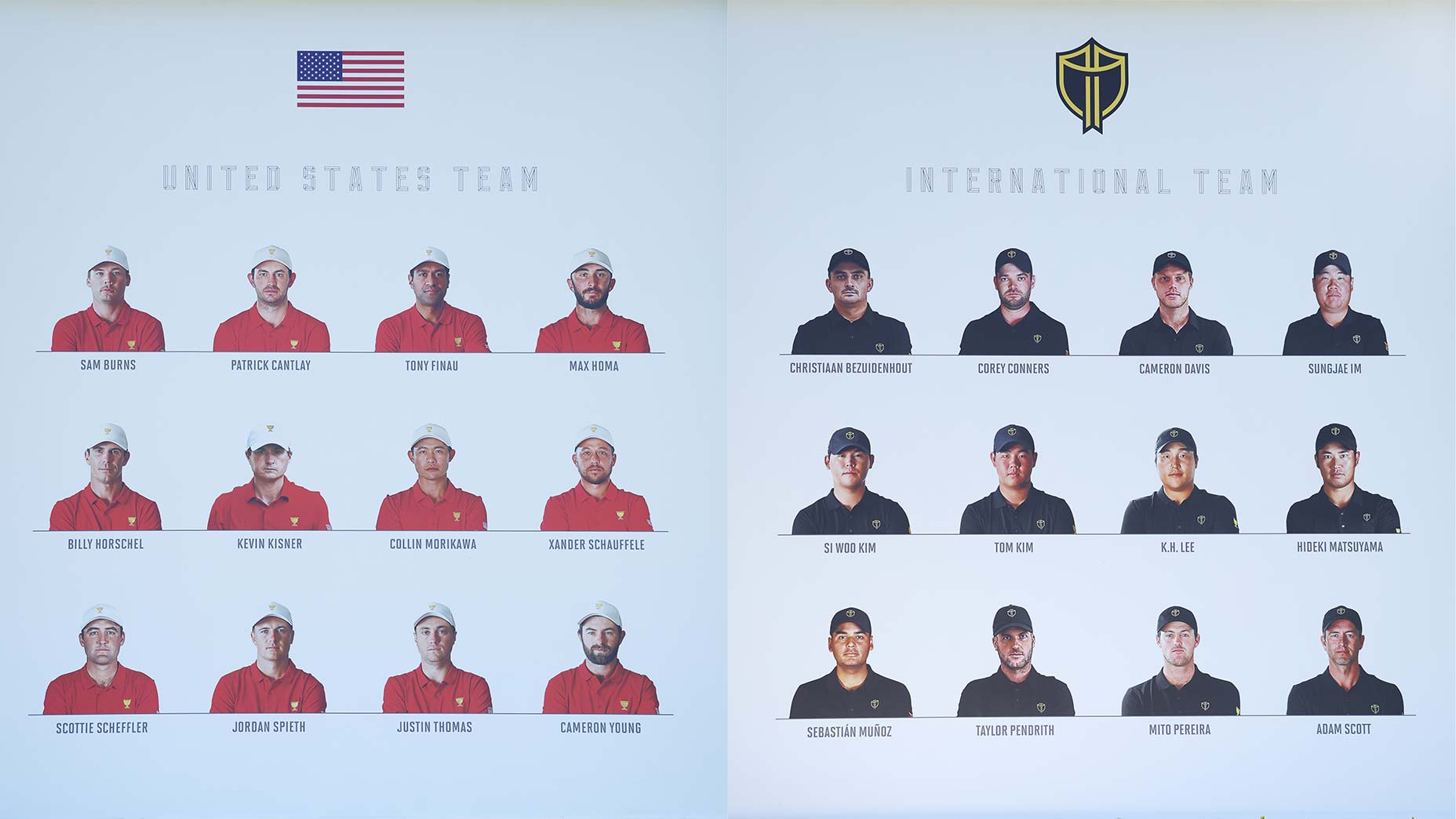The preamble is a staple of modern times. We have teasers for trailers and pregame shows for pregame shows. All that anticipation — it’s numbing. The hype machine compels us to watch while the PR division manages our expectations.
Breaking: DJ’s scheduled 2 p.m. media availability has been postponed. Details pending.
But we have not, thankfully, completely lost our capacity for surprise, to be left thunderstruck. As we say a long goodbye to ‘21, we remember a few of our favorite things. Here we have two scenes from the year, and one insight for the ages, you could not see coming, instances when golf used her odd magic to stir our collective soul.
One of the moments came on a warm Sunday in April, in Augusta, when Hideki Matsuyama was trying to win the Masters, and thereby become the first player from Japan to do so. Augusta National took from him. (His second shot on 15, over the green and into the pond.) But the old gal gave him more. (His tee shot on 13, sailing wildly right until it bounced off a pine and back into play.) After Hideki tapped in on 18 for a one-shot victory, his caddie, Shota Hayafuji, dutifully put the flagstick back.
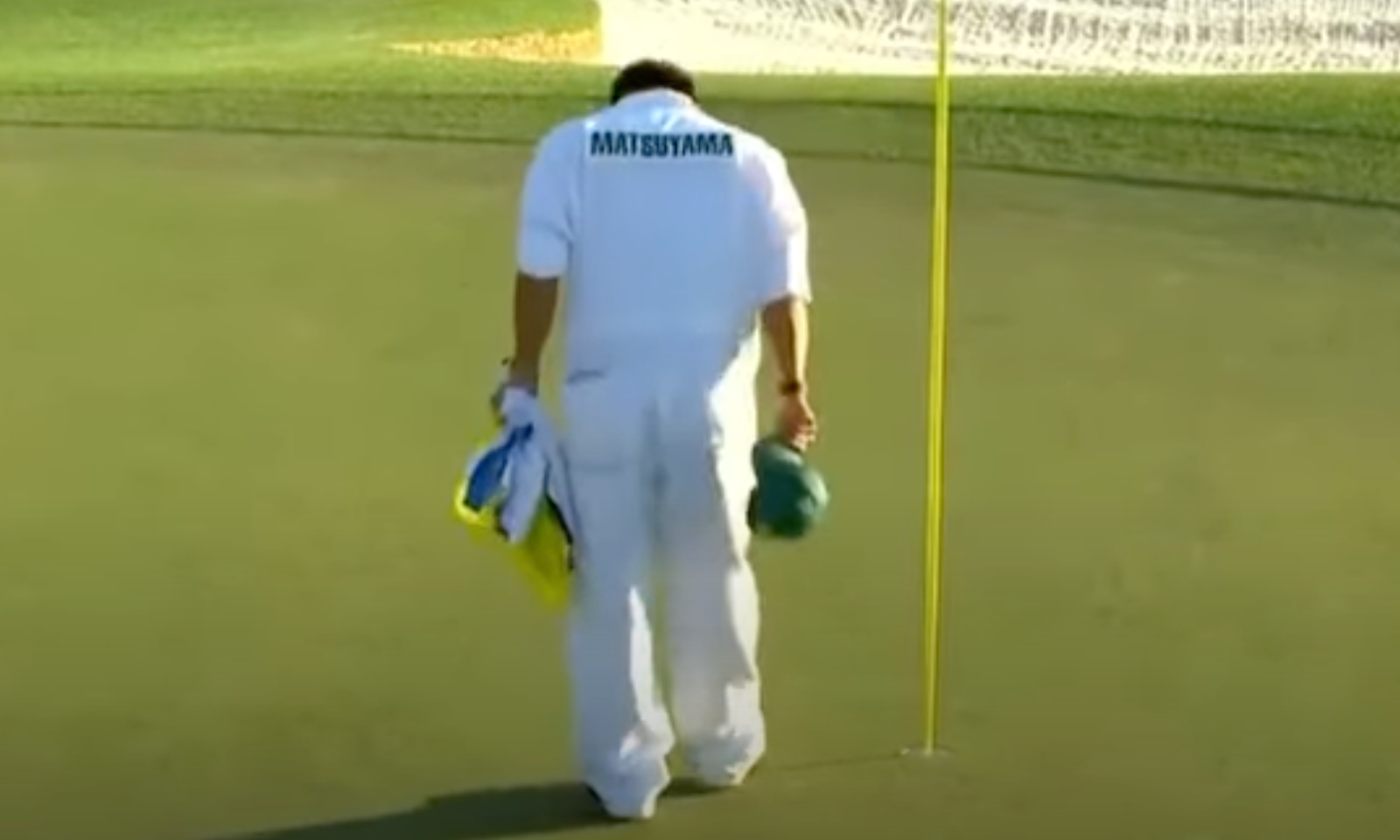
And then, without any fanfare, Shota removed his green cap with his right hand and looked down the 18th hole. With his caddie towel and some other things still in his left, he bowed. It was so simple, beautiful and unexpected. East had met West, as never before.
Then, in late September, we saw Rory McIlroy in a new way. This was at Whistling Straits, on the last day of the Ryder Cup, with the Europeans far behind a better American team. McIlroy, transplanted Irishman (he lives in South Florida), was representing his continent. He batted first in the Sunday lineup, placed there by his captain, Padraig Harrington or Ireland. McIlroy did his job. He won his match.
Tearful Rory McIlroy showed why the Ryder Cup is ‘the best event in golf’By: James Colgan
But then, in two post-round TV interviews, his internal life seemed to pour out of him. “It’s by far the best experience in golf and I hope the boys and girls watching this today will aspire to play in this event, or the Solheim Cup, because there’s nothing better than being a part of a team, especially with the bond that we have in Europe,” McIlroy said in the first interview, his eyes welling. “I’ve never cried or gotten emotional over what I’ve done as an individual — I couldn’t give a sh-t,” he said in the second. Who saw any of that coming?
The words were moving, but you sensed there had to be more going on, under the hood, maybe more than even Rory could know, thoughts and feelings from a place so deep he couldn’t reach there himself. You can turn your life inside-out, in the name of golf. There are costs. But the game is some teacher.
Which sets the stage for this valedictory from the great Kathy Whitworth of Dallas, where she lives with her memories, her partner, their dogs. In January, Miss Whitworth was asked to sum up what she has learned in her 80-plus years. She considered the question and said, “We can all be honest with ourselves. We can accept who we are. But we can change the things we think need changing.”
The legend then paused briefly before offering this gift for the ages. It came out of nowhere:
“You should like yourself.”
Michael Bamberger welcomes your comments at Michael.Bamberger@Golf.com
